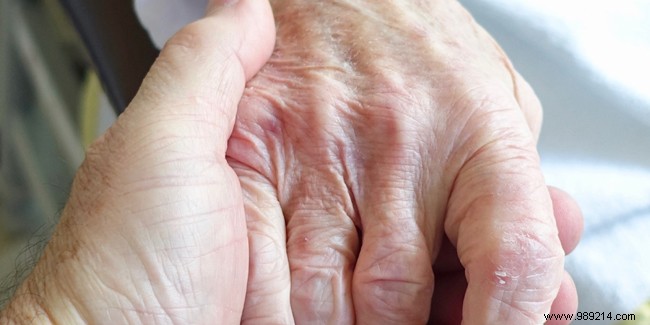
In France, 11 million people are considered to be family caregivers of an elderly person, the majority of them women. Most family caregivers are spouses and almost 20% other family members. They play a vital role in supporting elderly people with a loss of autonomy.
But reconciling your personal and professional life when you are a family caregiver is not always easy and this support is often the cause of stress and fatigue. This is why a 2015 law clarified the situation of family caregivers by granting them a status that gives them rights in terms of leave, training or financial aid.
The terms "near caregiver" or "family caregiver" mean the same thing. They refer to people who come to the aid of a dependent or disabled person. These caregivers can be family members of the elderly person with a loss of autonomy, or any other person around them that they have chosen.
The family caregiver can provide a service alone to an elderly person who needs it, or his presence can be supplemented by that of home help professionals.
The status of family carer has been recognized legally and legally since the law relating to the adaptation of society to aging passed in 2015. It is defined as follows:“A family carer is considered to be the spouse, the cohabitant, the person with whom the beneficiary has concluded a civil pact of solidarity, the ascendant, the descendant or the collateral up to the fourth degree of the beneficiary, or the ascendant, the descendant or the collateral up to the fourth degree of the other member of the couple who provides human assistance and who is not paid for this assistance .
Many structures (local information point for the elderly, local respite support platform, etc.) and websites dedicated to caregivers (The Caregiver Company, With Our Loved Ones, Aidant Attitude, National Caregiver Day, etc.) are now available to family caregivers who wish to be accompanied in their efforts to support an elderly relative who is losing their autonomy.
Benefiting from the status of family caregiver makes it possible in particular to be paid to help an elderly relative. This possibility is open to seniors who receive Personalized Autonomy Assistance (APA). They can, indeed, with this financial assistance, employ a member of their family and thus pay it. Be careful however, it cannot be the spouse, the PACS partner or the cohabiting partner. In these cases, the family caregiver, like all employees, signs an employment contract with the elderly person who employs him, and he is declared to Urssaf.
Formerly called "family support leave", caregiver leave allows a person who works in the private sector, whose seniority in his company is at least one year, to suspend for a time, or to reduce , his professional activity to devote himself to a loved one with a loss of autonomy. This unpaid leave, of a maximum duration of 3 months, is renewable within the limit of one year over the entire professional career. It can be taken in a fractional way or in the form of part-time. During this period, the family carer benefits from free old-age insurance for stay-at-home parents (AVPF), which allows them to acquire quarters of pension insurance under the general scheme.
Caregiver leave is taken at the initiative of the family caregiver who informs their employer at least one month before the planned departure date. The latter cannot refuse it unless the employee does not meet the conditions that give entitlement to caregiver leave. This period of leave ends on the death of the person being cared for, if he is admitted to a specialized establishment, if he has recourse to a home help service or if the family carer notices a significant reduction in his resources.
It should be noted that since the entry into force of a law in 2018, it is also possible for employees to donate their days of leave not taken to a family caregiver colleague, thus allowing the latter to be paid during their absence.
This leave being unpaid, very few people ask to benefit from it, which is why the Minister of Solidarity and Health, Agnès Buyzn, announced in July 2019, the creation in 2020 of a paid leave for "caregivers " who support an elderly, ill or disabled loved one; this measure should be included in the next Social Security budget.
The carer of an elderly person at the end of life who has a professional activity can benefit from a so-called family solidarity leave for a period of 3 months, renewable once. It is up to him to make the request to his employer. This leave may be continuous, divided or transformed into part-time. It is unpaid but the family carer in this situation is entitled to payment of the daily allowance to support a person at the end of life, set at 56.10 euros per day (as of April 1, 2019) in the maximum limit of 21 days.
The law relating to the adaptation of society to aging also introduced what is known as a "right to respite" for family carers. It aims to allow them to free up time to rest. Within the limit of a maximum aid of 500 euros per year, it allows the family carer to have the possibility for the elderly person for whom he takes care of being admitted from time to time to day care or at night, temporarily in an establishment or a family home or to have recourse to a relay at home to replace him.
In order to best support family caregivers, many training courses provided by health professionals on topics such as "The daily relationship with your loved one", "Communicating with your loved one", "How to reconcile your life as a caregiver with his personal and social life", etc. are now organized throughout France. Some of these non-vocational trainings are offered free of charge to family carers.